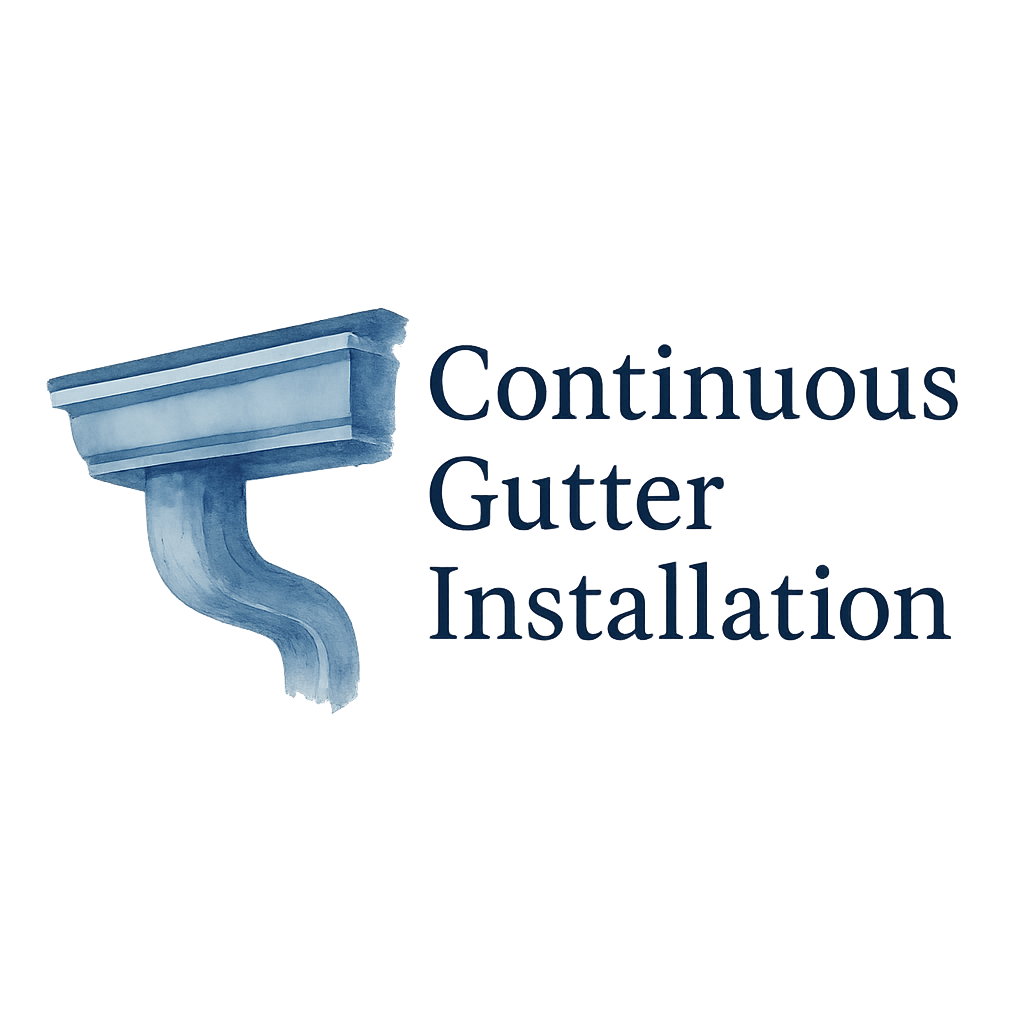Introduction
Thinking of tackling a continuous gutter installation project on your own? You’re not alone. Many homeowners love the idea of a hands-on approach—it saves money, gives a sense of accomplishment, and allows for customization. But here’s the catch: gutter installation is not just about attaching metal channels to your roofline. It’s a high-risk project that involves heights, tools, and sometimes even unpredictable weather.
Before you climb that ladder, let’s talk about safety. In this guide, we’ll walk you through 9 essential safety tips for DIY continuous gutter installation projects so you can protect yourself while achieving professional-looking results.
Why Safety Matters in Continuous Gutter Installation
The Risks of DIY Gutter Work
Continuous gutters may look simple, but the installation process can be dangerous. Falls from ladders, cuts from sharp metal edges, and electrical hazards near power lines are common risks. Not to mention, one wrong move could lead to costly damage to your home’s roofline or siding.
Why Homeowners Still Choose DIY Projects
Despite the risks, many homeowners are drawn to DIY gutter installation because it’s often cheaper than hiring professionals. With proper preparation and by following safety guidelines, DIY projects can still be rewarding and cost-effective.
Safety Tip #1: Wear Proper Safety Gear
Essential Protective Clothing
Think of gutter installation like going into a construction zone—you wouldn’t go in without gear, right? Wear durable clothing, slip-resistant shoes, and long sleeves to protect your skin from scratches and debris.
Importance of Gloves, Goggles, and Helmets
Gloves protect your hands from sharp edges, goggles keep debris out of your eyes, and a helmet adds an extra layer of security if something falls while you’re on the ladder. These small items can make a big difference in preventing accidents.
Safety Tip #2: Use a Stable Ladder
Choosing the Right Ladder for Gutter Installation
A wobbly ladder is a recipe for disaster. Opt for an extension ladder tall enough to reach your gutters without forcing you to stand on the top rung.
Ladder Placement and Stability Checks
Always place the ladder on a flat, solid surface. Use ladder stabilizers or have someone hold the base for extra support. A few seconds spent on ladder safety can save you from serious injury.
Safety Tip #3: Work with a Partner
Why Two Sets of Hands Make a Difference
DIY doesn’t have to mean doing it all alone. Having a partner nearby ensures someone can steady the ladder, hand you tools, and act quickly in case of an accident.
Emergency Preparedness
If something goes wrong, your partner can call for help immediately. It’s always better to have backup.
Safety Tip #4: Be Mindful of Electrical Hazards
Power Lines Around Rooflines
Gutters often run close to electrical wires. Contact with these lines can be deadly. Always be aware of your surroundings and maintain a safe distance.
Using Non-Conductive Tools
Choose fiberglass or wooden ladders over metal ones near electrical hazards. Non-conductive tools reduce the risk of accidental shocks.

Safety Tip #5: Check Weather Conditions
The Dangers of Wet or Windy Days
Climbing ladders during rain or high winds is like playing with fire. Slippery surfaces and gusts of wind make it extremely unsafe.
Seasonal Considerations for Safe Installations
Spring and fall are generally ideal seasons for installation. Avoid extreme heat or icy conditions, which can increase the risk of falls and fatigue.
Safety Tip #6: Secure Tools and Materials
Preventing Falls from Loose Items
Loose screws, nails, or tools can fall and cause injuries below. Always secure your materials before climbing.
Tool Belts and Organizers
Use a sturdy tool belt or bucket hook to keep everything within reach without juggling items on the ladder.
Safety Tip #7: Practice Ladder Safety Techniques
The Three-Point Contact Rule
Keep at least three points of contact with the ladder at all times—two hands and one foot, or two feet and one hand.
Proper Ladder Height and Angle
Set your ladder at a 75-degree angle for stability. A good trick is to stand at the base and extend your arms forward—your hands should touch the ladder comfortably.
Safety Tip #8: Take Breaks and Avoid Fatigue
Why Fatigue Increases Risk
Tired muscles and loss of focus increase the chance of mistakes. A quick break can restore your energy and attention.
Hydration and Rest Recommendations
Drink water regularly and step away if you start feeling lightheaded or exhausted. Working smarter, not harder, is the key.
Safety Tip #9: Know When to Call Professionals
Situations Where DIY Becomes Risky
If your roofline is unusually high, your home has tricky angles, or electrical lines are too close, it’s safer to leave the job to professionals.
How Professionals Ensure Safety and Quality
Experts have the right equipment, training, and experience to handle challenging installations safely. Plus, they often offer warranties on their work.
Additional Safety Tips for DIY Gutter Projects
Using Proper Cutting Tools
Always use the right tools when cutting gutter sections. Improvised tools can slip and cause injuries.
Checking for Pest Nests and Debris
Before installing, check gutters for nests, bees, or rodents. Disturbing pests mid-project can lead to dangerous situations.
The Role of Maintenance After Installation
Seasonal Cleaning and Inspections
Even after installing continuous gutters, safety doesn’t end there. Regular cleaning and inspections prevent clogs, leaks, and structural damage. Explore more on gutter maintenance and care.
Using Gutter Protection Systems for Long-Term Safety
Installing gutter protection systems like guards or screens minimizes the need for frequent ladder use, reducing long-term risks.
Cost Considerations vs. Safety Risks
Balancing Budget and Professional Help
DIY projects often save money, but if safety risks are too high, it may be smarter to hire a pro. You can explore more on gutter cost and budgeting.
Cost-Effective Alternatives for Safer Installations
Affordable options like budget gutters and cost-effective systems allow you to maintain safety without overspending.
Conclusion
DIY continuous gutter installation can be rewarding—but only if you put safety first. From wearing protective gear to knowing when to call in the pros, every precaution matters. Remember, gutters protect your home, but your safety protects everything else.
Whether you choose to DIY or hire experts, being informed is your best defense. For more resources, check out guides like gutter installation basics and modern gutter styles. Stay safe, stay smart, and let your gutters do the work they were built for.
FAQs
1. Can I install continuous gutters alone?
It’s possible, but not recommended. Always work with a partner for safety.
2. What’s the biggest danger in DIY gutter installation?
Falls from ladders are the number one risk. Proper ladder use is critical.
3. How do I know if my ladder is safe for gutter work?
Check that it’s rated for your weight, tall enough for your roofline, and stable on solid ground.
4. Should I attempt installation near power lines?
No. This is extremely dangerous. Call professionals instead.
5. What time of year is best for gutter installation?
Spring and fall are safest. Avoid extreme heat, icy conditions, or heavy winds.
6. How can I reduce maintenance after installation?
Consider adding gutter screens or guards to minimize debris buildup.
7. Is DIY gutter installation worth it?
If you’re comfortable with tools and ladders, it can save money. But safety should always come first.


